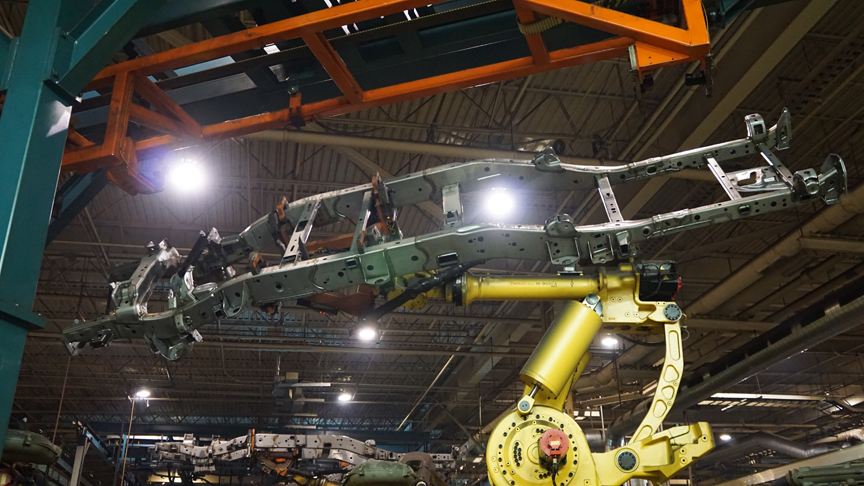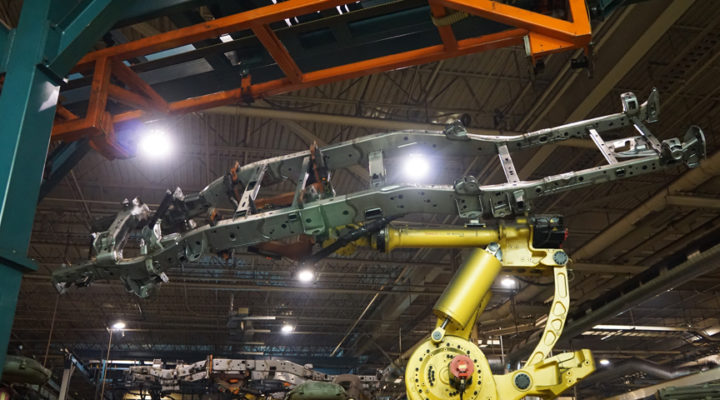Growing manufacturer finds new ways to recruit young talent

By RICK GAMES
With that said, I’m excited to see many employers connecting with our youth, helping them discover opportunities to start high-demand careers here. The latest example is a new hiring model adopted by Metalsa.
Already one of the global automotive supplier’s largest operations, Metalsa’s Elizabethtown plant is expanding to create 250 new jobs this year and in 2020. To help prepare a workforce to match its growth, Metalsa launched its Jump Start program.
The program is designed to attract new high school graduates to the company. Working with seven area high schools, Metalsa introduced itself to high school seniors who could begin working for the company after they graduate and turn 18. Interested students were invited to apply and those selected will work full-time, earning good wages and benefits.
The Jump Start program waives the typical minimum experience requirements for new high school grads, and it allows applicants to choose one of two paths — the Direct Hire Path or the Tuition Reimbursement Path.
Metalsa’s Direct Hire Path appeals to students who are more interested in starting a career immediately and it offers opportunities to participate in Metalsa’s apprenticeship programs.
Jump Start participants on Metalsa’s Tuition Reimbursement Path are immediately eligible for scholarships through Elizabethtown Community and Technical College as well as Metalsa’s tuition reimbursement program. Tuition reimbursement is not normally an immediate employee benefit.
“Jump Start is a great example of how employers can tap into ECTC’s programs and offerings to recruit and retain a higher quality workforce,” ECTC president Dr. Juston Pate said. “It’s a win for the employee and the company.”
Pate also co-chairs the Unlocking Local Potential Subcommittee of the Lincoln Trail Workforce Development Board’s Workforce Crisis Task Force. The committee is focused on increasing work-based learning opportunities in our region’s in-demand sectors, including advanced manufacturing.
Too many young people in our region lack an understanding of the career opportunities available to them locally. Secondly, students who go away to college commonly stay away, Pate said, because they connect with employers and careers close to the colleges they attend.
The committee’s work is guided by this principle: When we create opportunities for students to experience work-based learning locally, they become much more likely to choose to stay in their home communities. These opportunities include everything from a high school student’s daylong job shadowing, to a college student’s semester-long internship, to full apprenticeship programs. Ultimately, it’s an effort to grow our population, our workforce and our economy.
What we’re seeing at Metalsa is one example of an individual employer’s plan to unlock local potential. As president of the Elizabethtown-Hardin County Industrial Foundation, I applaud Metalsa’s new approach. Not only are the company’s representatives taking steps to ensure the up-and-coming labor force is aware of local job opportunities, but they’ve created a realistic pathway to a long-term career for new grads.
Rick Games is president and COO of the Elizabethtown-Hardin County Industrial Foundation. He can be reached at 270-737-0300.
RELATED EVENT: Apprenticeship Summit, 9 a.m. to 2:30 p.m., April 10, Elizabethtown Community and Technical College, Room 212 Regional Post-Secondary Center. Employers are invited to learn about the benefits of apprenticeships and how ECTC and KCTCS can help companies establish apprenticeship programs. For more information, contact Mike Hazzard, Dean of Workforce Solutions and Technical Programs, at 270-706-8686 or mikew.hazzard@kctcs.edu.


